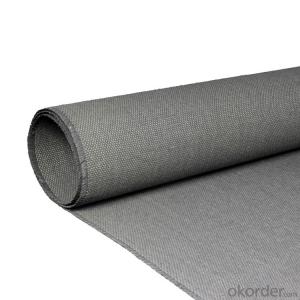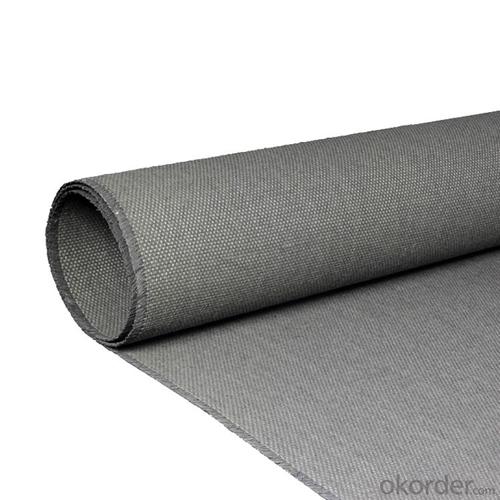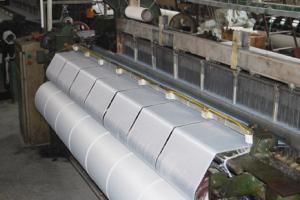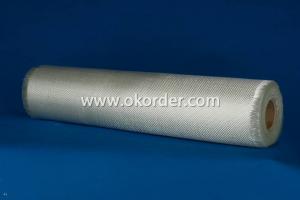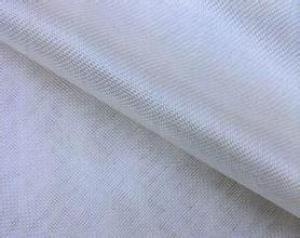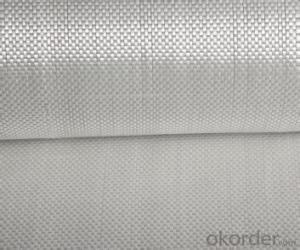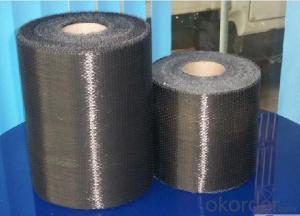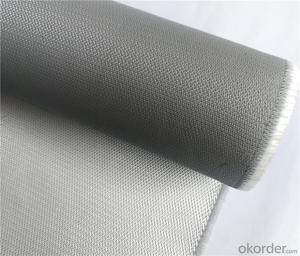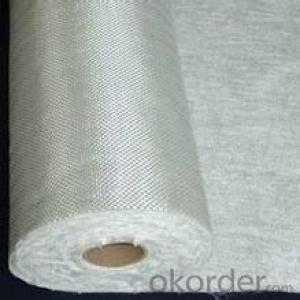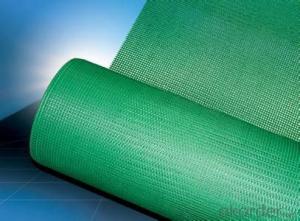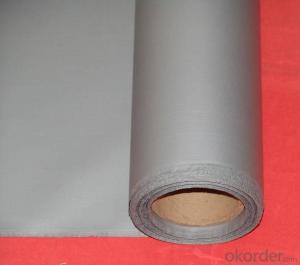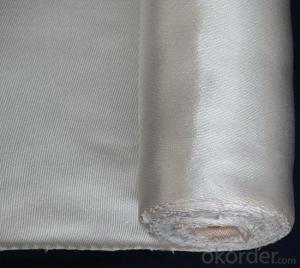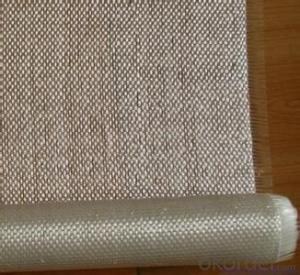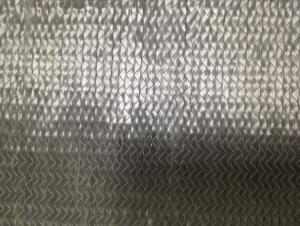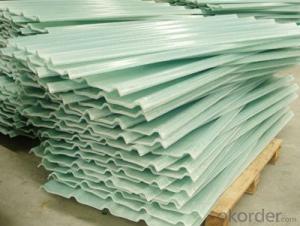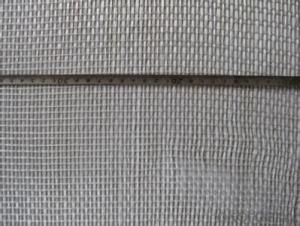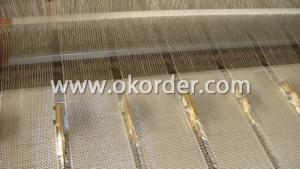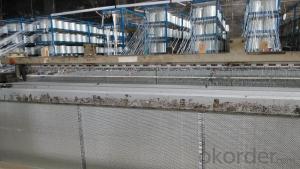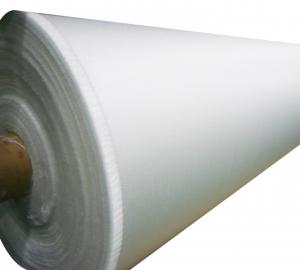3D Fireproof Fiberglass Fabrics Coated with Calcium Silicate
- Loading Port:
- Ningbo
- Payment Terms:
- TT OR LC
- Min Order Qty:
- 500 m²
- Supply Capability:
- 300000 m²/month
OKorder Service Pledge
OKorder Financial Service
You Might Also Like
Description: The heavyweight woven fiberglass fabric treated with special calcium silicate solution which provides a high-temperature resistance as well as greater abrasion. The continuous temperature up to 700℃, Short burst up to 750℃
Features: high temperature resistance,heat resistance
Application: Removable insulation mattress, jacket & pad, Fire doors/smoke curtain, Dust filter bag, Flexible expansion joints & compensators
PRICE: USD5 per square meter
UNIT: square meter
MOQ: 500square meters
Weight: 1100gsm
Width: 1m 1.5m 1.8m or customized
Yarn Type: E-glass
Standing temperature: up to 700℃
Product name: Calcium Silicate Coated Fiberglass Fabric
Coating/Finish/Surface Treatment: Calcium Silicate coated
Roll length: 50 meter or customized
Color: grey or customized
Weave Type:plain woven
Alkali content: Alkali free
Processing service: cutting
Material: fiberglass
Thickness: 1.4mm
Size: can be customized
Supply ability: 300000 meters per month
Packaging: Rolls packed In cartons loaded on pallets or according to customers' requirements.
Lead time: 7-30 days
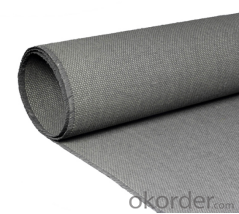
- Q: What are the different fiberglass fabric weaves for high strength applications?
- There are several different fiberglass fabric weaves that are commonly used for high strength applications, including plain weave, twill weave, satin weave, and leno weave. Plain weave is the most basic and commonly used weave, providing good strength and durability. Twill weave offers a diagonal pattern and increased strength compared to plain weave. Satin weave has a glossy appearance and provides excellent strength and flexibility. Leno weave is specifically designed for high strength applications and offers enhanced stability and resistance to fraying.
- Q: Can fiberglass fabric be used for insulation in pipelines?
- Yes, fiberglass fabric can be used for insulation in pipelines. Fiberglass fabric is known for its excellent thermal insulation properties and is commonly used in various industrial applications, including pipeline insulation. It is an effective material for reducing heat loss or gain in pipelines and helps maintain the desired temperature of the transported fluid. Fiberglass fabric is lightweight, flexible, and easy to install, making it an ideal choice for insulating pipelines. Additionally, it is resistant to corrosion, moisture, and chemical exposure, ensuring long-term insulation performance.
- Q: Can fiberglass fabrics be used for reinforcement in 3D-printed objects?
- Yes, fiberglass fabrics can be used for reinforcement in 3D-printed objects. The fiberglass fabric can be embedded in the printing material to enhance the strength and durability of the finished object.
- Q: Can fiberglass fabric be used for indoor applications?
- Yes, fiberglass fabric can be used for indoor applications. It is commonly utilized for insulation, soundproofing, and reinforcement purposes in various indoor settings such as homes, offices, and commercial buildings.
- Q: Is glass fiber cloth harmful to people?
- If you stick to the skin, it is difficult to clean out, because on the one hand, the naked eye is difficult to see, on the other hand, it is fragile, easy to break in the skin, if inhaled lung damage is greater, so harmful to the human body.
- Q: Is fiberglass fabric resistant to chemicals in chemical processing plants?
- Yes, fiberglass fabric is generally resistant to chemicals in chemical processing plants. Fiberglass is known for its excellent chemical resistance properties and is widely used in various industrial applications, including chemical processing plants. It is highly resistant to a wide range of chemicals, including acids, alkalis, solvents, and many other corrosive substances found in chemical plants. This resistance makes fiberglass fabric a reliable and durable material for use in the construction of equipment, piping, tanks, and other components in chemical processing plants. However, it is important to note that the specific type and concentration of chemicals being handled should be considered when selecting the appropriate fiberglass fabric to ensure optimal chemical resistance.
- Q: How do fiberglass fabrics perform in terms of heat resistance?
- Fiberglass fabrics have excellent heat resistance properties. They can withstand high temperatures without melting or losing their structural integrity. This makes them suitable for various applications where heat protection is required, such as insulation materials, fireproof clothing, and thermal barriers.
- Q: Can fiberglass fabrics be used for reinforcement purposes?
- Fiberglass fabrics serve as effective reinforcements for a multitude of purposes. This sturdy and lightweight material is extensively utilized in diverse industries for the reinforcement of structures. In the construction field, it is widely employed to enhance the strength and durability of concrete structures. Moreover, in the automotive sector, fiberglass fabrics are utilized for reinforcing several vehicle components, including car bodies and panels. Similarly, in the marine industry, they are commonly used to fortify boat hulls and decks. The remarkable tensile strength and resistance to corrosion make fiberglass fabrics an optimal choice for reinforcement applications. Additionally, their ability to easily mold into intricate shapes renders them highly adaptable for various uses.
- Q: How does fiberglass fabric handle oil and chemical spills?
- Fiberglass fabric is highly resistant to oil and chemical spills. It is non-absorbent and does not react with most chemicals, making it an effective material for containing and cleaning up such spills. The fabric's durability and high tensile strength allow it to withstand the harsh effects of oil and chemicals, making it a reliable choice for spill control and containment measures.
- Q: Is fiberglass fabric breathable?
- Fiberglass fabric is not breathable. It is made from woven glass fibers, which create a tight and dense structure that does not allow air to pass through easily. This lack of breathability makes fiberglass fabric suitable for applications that require insulation, fire resistance, or protection against chemicals and abrasion. However, it can also trap heat and moisture, which may be uncomfortable in certain situations.
Send your message to us
3D Fireproof Fiberglass Fabrics Coated with Calcium Silicate
- Loading Port:
- Ningbo
- Payment Terms:
- TT OR LC
- Min Order Qty:
- 500 m²
- Supply Capability:
- 300000 m²/month
OKorder Service Pledge
OKorder Financial Service
Similar products
Hot products
Hot Searches
Related keywords
